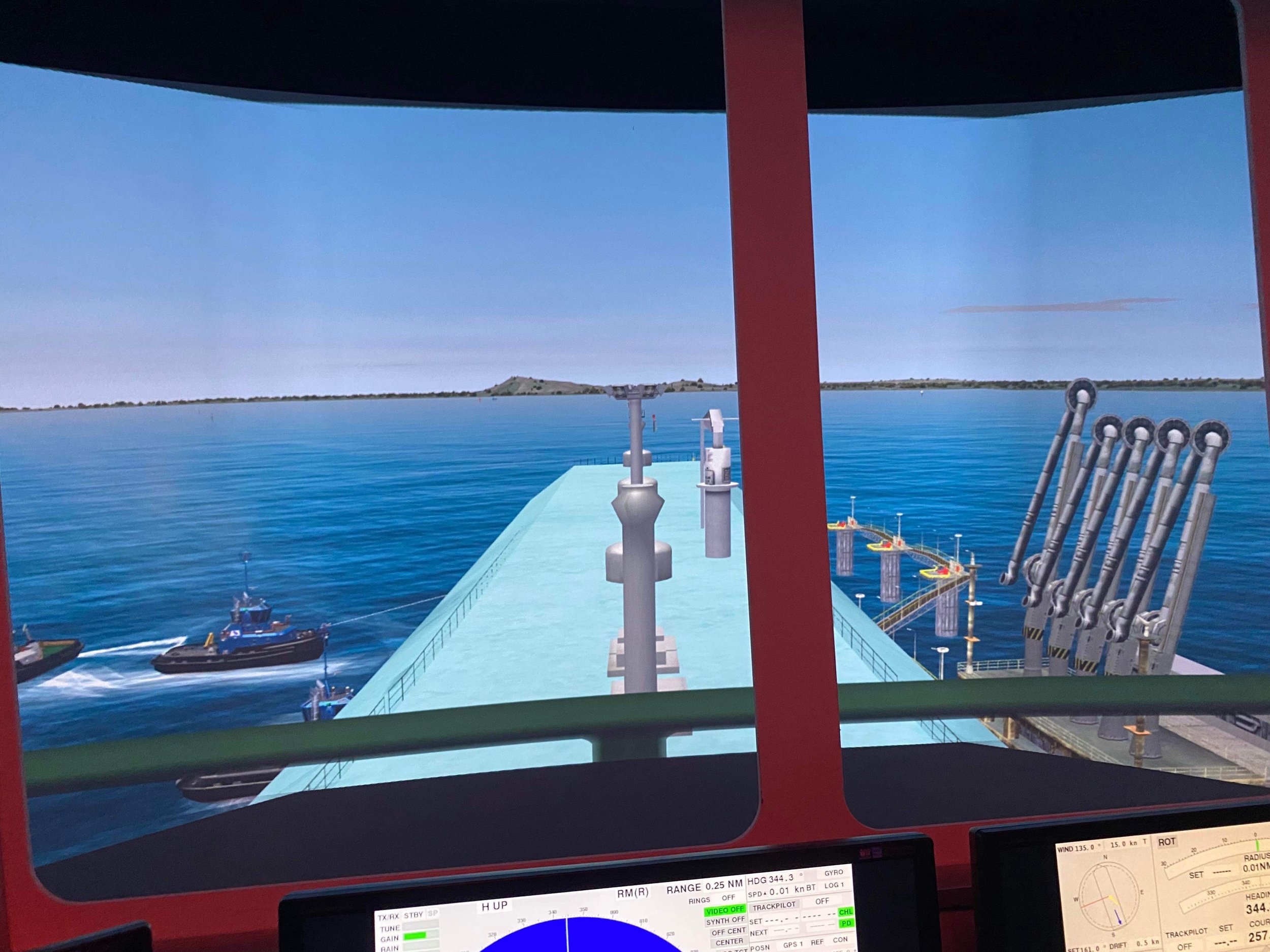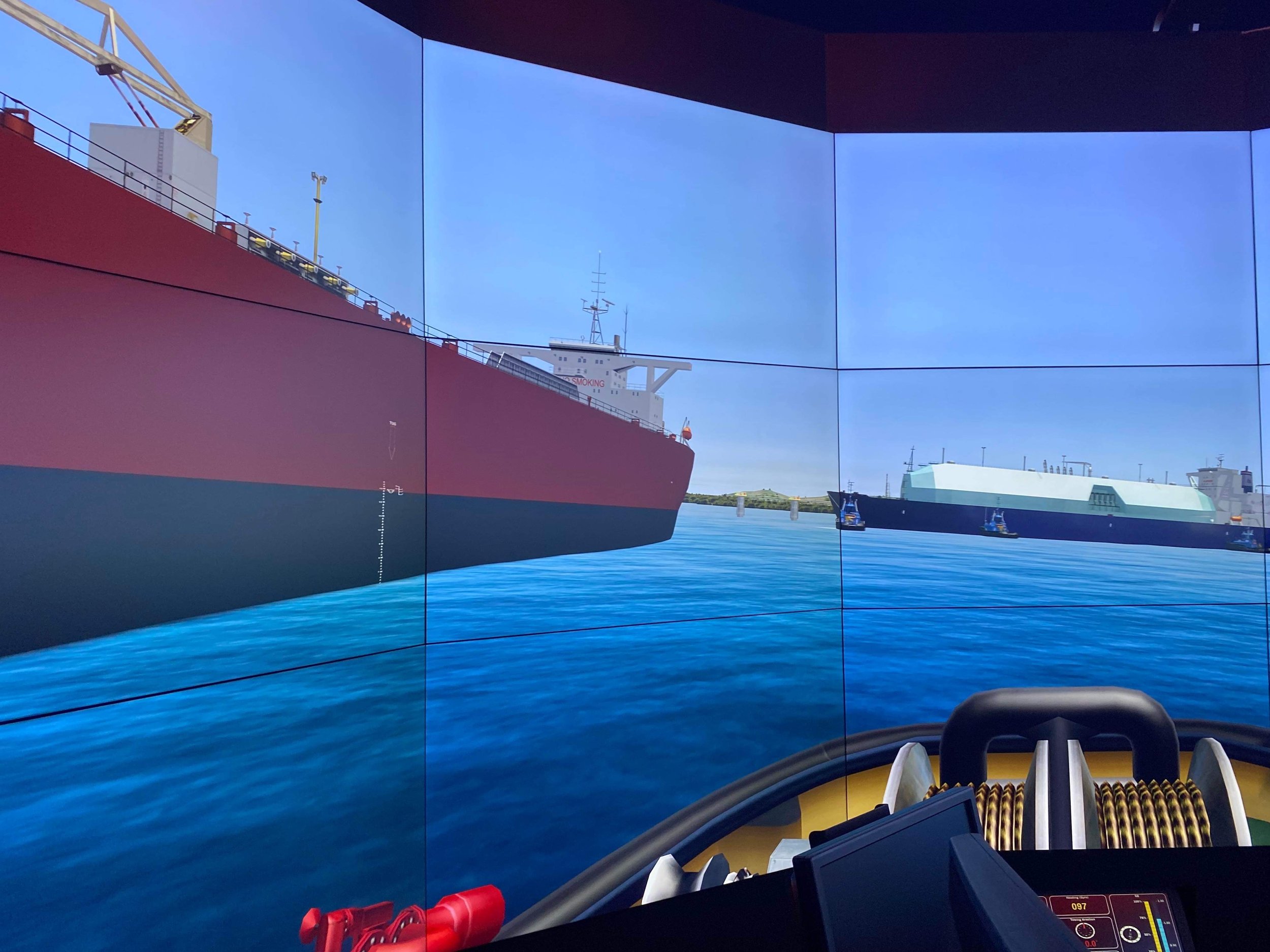PSP - LNG Simulations in Port Development
PAPUAN SEA PILOTS realise the importance of Marine Pilotages assisting in Port Development for the future cause we believe Marine pilotage plays a crucial role in the LNG port development PNG by ensuring the safe and efficient navigation of LNG carriers through the port. Here are some of the key reasons why marine pilotage is important in LNG port development:
LNG carriers are large and complex vessels: LNG carriers are some of the largest and most complex vessels in the world, and they require skilled and experienced pilots to navigate them safely through ports and waterways. Pilots help to ensure that these vessels are steered safely through narrow channels, past obstacles, and in and out of berths.
Safety is paramount: Safety is a top priority in the transportation of LNG, as LNG is a hazardous substance that requires careful handling and management. Pilots play a critical role in ensuring the safe navigation of LNG carriers, which can be at risk of collisions, groundings, and other accidents if not properly guided through ports and waterways.
Environmental concerns: LNG carriers also pose environmental risks if not navigated safely through ports and waterways. Pilots help to mitigate these risks by ensuring that LNG carriers are properly maneuvered and that all environmental regulations and protocols are followed.
Efficiency and productivity: Pilots also play a role in ensuring the efficient and productive operation of LNG ports. By navigating LNG carriers safely and efficiently, pilots help to reduce turnaround times, increase productivity, and minimize delays and downtime.
Overall, marine pilotage is critical to the safe and efficient operation of LNG ports, and it is an essential component of LNG port development. Without skilled and experienced pilots, LNG carriers would be at risk of accidents and environmental incidents, and the productivity and efficiency of LNG ports would be compromised.




